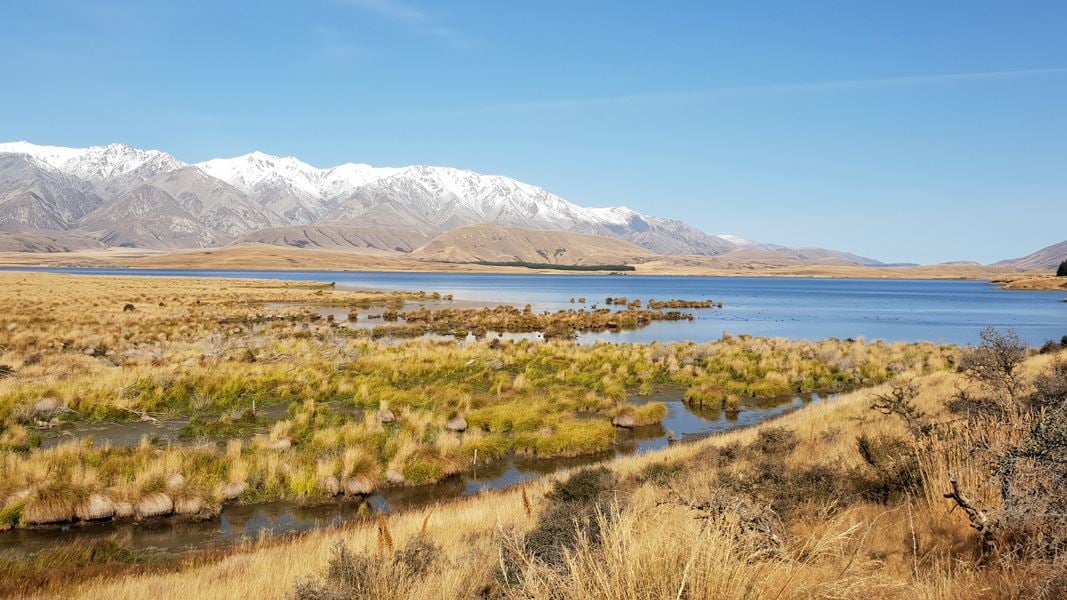Arawai Kākāriki, translated as "green waterways", is DOC's flagship wetland conservation and science programme. It was launched in 2007 to provide leadership in freshwater research and restoration at nationally important sites.
Arawai Kākāriki covers a diverse range of wetland, lake, estuary and river ecosystems from Northland to Southland, across five of New Zealand’s most outstanding wetland systems.
Wetlands once covered 2.4 million hectares of New Zealand but over 90% of these have been drained or cleared. The remaining wetlands and their connecting lakes and rivers are under threat from land use changes, climate change and pest flora and fauna.
DOC is working with scientists, iwi, other partners and the community to learn about and restore the health of these vital natural environments. Research, collaboration and public involvement are intrinsic elements of Arawai Kākāriki.
Our three core sites were originally chosen for restoration based on their significant ecological values: Whangamarino Wetland, Ōtūwharekai, and Awarua-Waituna Wetland. See a map of the core sites.
As part of DOC's 2025 stretch goal to have 50 freshwater ecosystems restored “mountains to the sea,” DOC is now providing science support for the restoration of two other wetland sites: Moawhitu, a 650 ha coastal wetland and lake on Rangitoto ki te Tonga/D'Urville Island; and Kaimaumau-Motutangi, a 3,000 ha coastal wetland and dune system that's one of the largest remaining wetland systems in Northland.
Check out what's been happening across our sites:
Whangamarino Wetland is a lowland mosaic of wetland types covering almost 7,000 ha. It is the second largest wetland in the North Island and is recognised as a Ramsar site – a wetland of international importance.
Our five main objectives are national leadership, ecological restoration, mātauranga Māori, working with others, and science and knowledge sharing.
We have several national projects that encompass multiple sites. Combining our knowledge across sites helps inform national wetland conservation.
